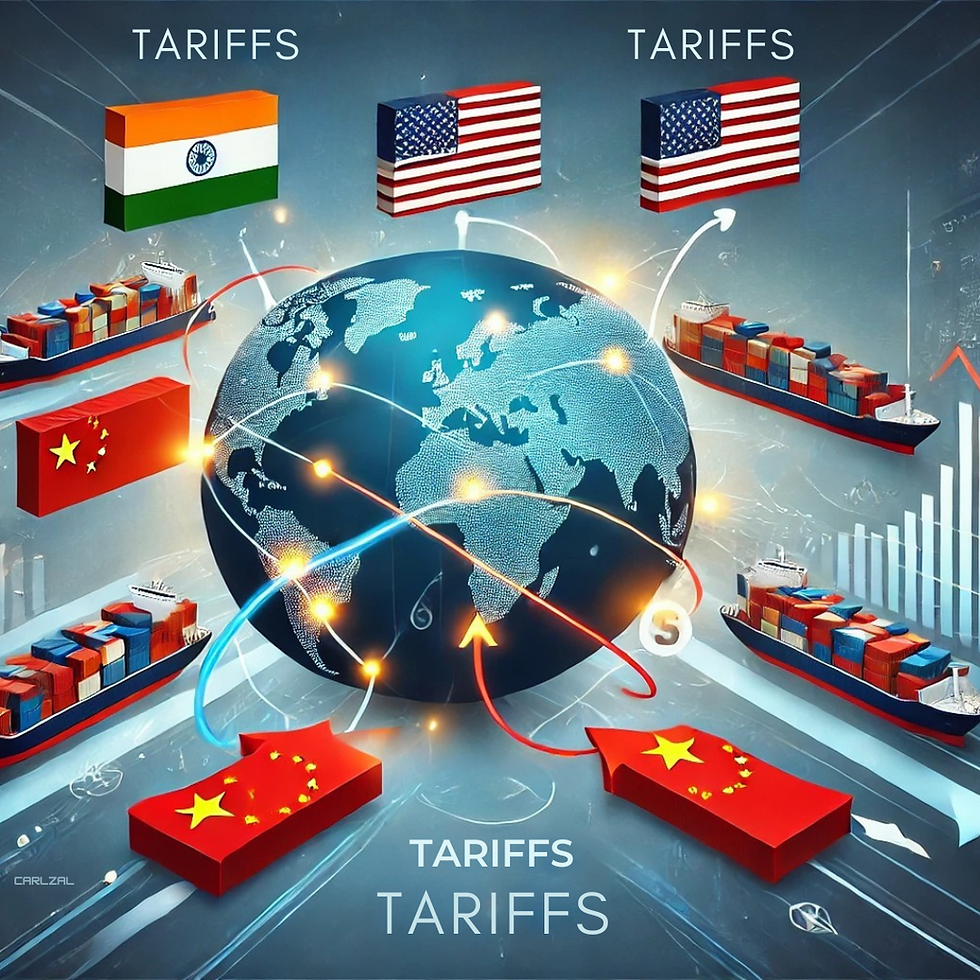Trump Auto Tariffs: Donald Trump Criticizes India's Auto Tariffs, Proposes Zero Tax on US-Made Cars
- SS AUDITORS AND TAX CONSULTANTS

- Mar 19, 2025
- 2 min read
Updated: Aug 6, 2025

In a recent announcement, former US President Donald Trump declared that automobiles manufactured in America would be exempt from taxes under his administration. While making this statement, Trump criticized India's steep tariffs on US vehicles, which he claimed exceed 100%.
"If you don't manufacture your product in America, you will pay a tariff — and in some cases, a rather significant one," Trump remarked.
Trump Auto Tariffs Highlighting Unfair Trade Practices
Trump emphasized that several countries, including the European Union, China, Brazil, India, Mexico, and Canada, impose substantially higher tariffs on US goods than the US charges in return.
"It's extremely unfair," Trump stated. "These nations have leveraged tariffs against us for years. Now it's our turn to introduce tariffs against them."
Trump Auto Tariffs and India in Focus
Pointing specifically to India's trade practices, Trump noted, "India charges us auto tariffs that exceed 100%. Meanwhile, China imposes tariffs that are twice what we charge them, and South Korea's average tariff is four times higher."
Trump expressed frustration over the imbalance despite the United States' extensive military and strategic support to certain countries.
Reciprocal Tariff Policy
Trump reiterated that his "reciprocal tariff" policy would come into effect on April 2. This policy aims to ensure that the United States imposes tariffs equivalent to those charged by other countries on American exports.
"That's what reciprocal means," Trump explained. "If they tax us, we will tax them."
Promoting Fair Trade Practices with Trump Auto Tariffs
The former President's announcement underscores his long-standing commitment to addressing trade imbalances. By introducing reciprocal tariffs, Trump aims to create a more level playing field for American industries while promoting domestic manufacturing.
For businesses looking to expand internationally or manage tariff implications, services like Import Export Code Registration and GST Registration are crucial. Additionally, understanding Income Tax Matters & Tax Planning can help businesses effectively manage their global financial strategies.
As the policy's April 2 launch date nears, global trade dynamics are expected to shift significantly, especially for countries that have historically imposed higher tariffs on US products.



Comments